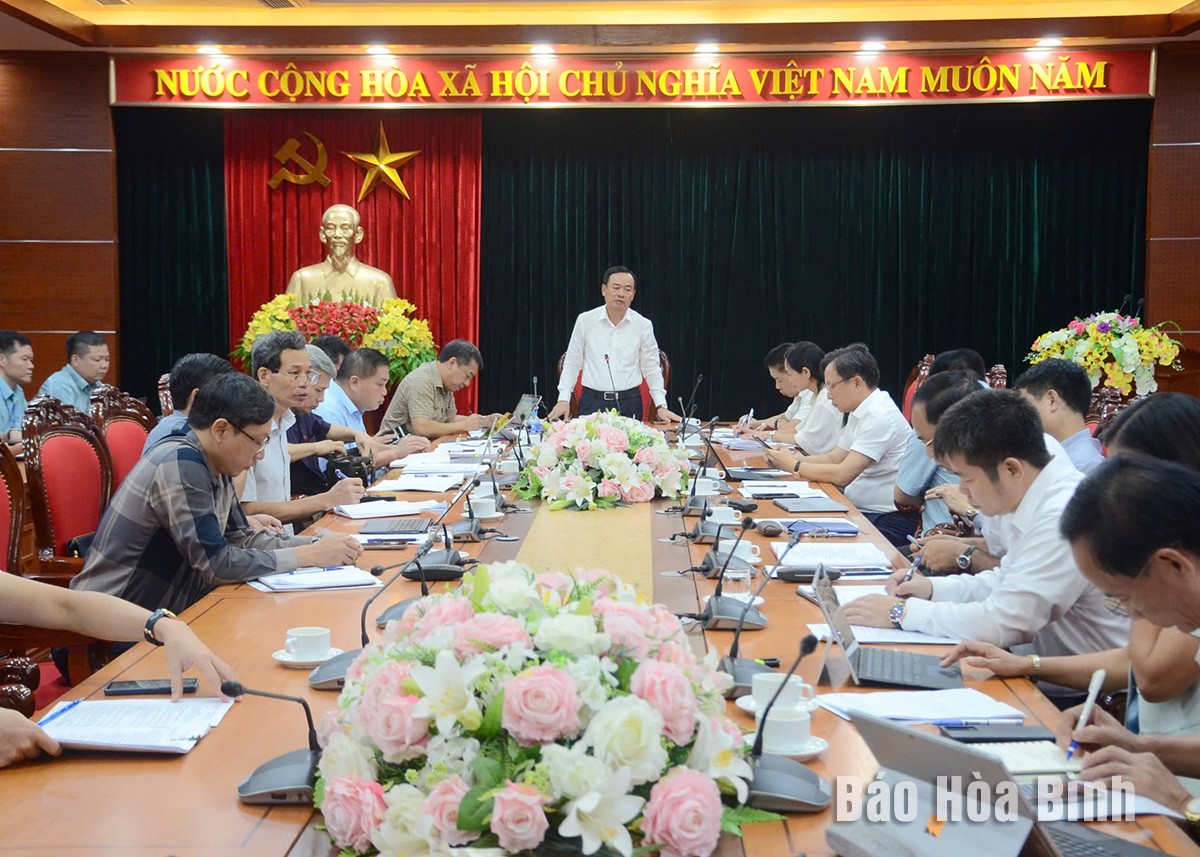



Vice Chairman of the provincial People's Committee Quach Tat Liem delivers a speech concluding the conference.
According to a report delivered at the conference, by July 31, the province’s total state budget revenue reached nearly 3.69 trillion VND (148.07 million USD), achieving 64% of the target set by the provincial People's Council. Specifically, revenue from import-export activities was about 253 billion VND, accounting for 97.3% of its target. Domestic revenue was approximately 3.43 trillion VND, or 62.5% of its target, up 77.2% year-on-year.
Of the domestic revenue, tax and fee collections amounted to over 2.07 trillion VND, accounting for 59.4% of the assigned target and marking an increase of 14.4% over the same period last year. Notably, land use fees collected surpassed 1.35 trillion VND, achieving 67.8% of the target and representing an 11-fold annual increase.
By now, the local total tax debt stood at around 3.96 trillion VND, of which land use fees amounted to nearly 2.12 trillion VND, 72% higher than the target.
Participants of the conference said the biggest challenge is the collection of land use fees at the district and city level. At present, total land use fees collected in these areas have only fulfilled 238 billion VND out of the required 700 billion VND, equivalent to 34% of the target. The primary reasons include unsuccessful land use rights auctions in the implementation of public asset auctions under Government Decree No. 167 on tackling asset-related procedural obstacles.
Speaking at the conference, Liem emphasised the need for a close cooperation between departments and agencies to thoroughly review and manage tax and fee collections, particularly resources and mineral exploitation taxes, to ensure accurate calculation and prevent losses.